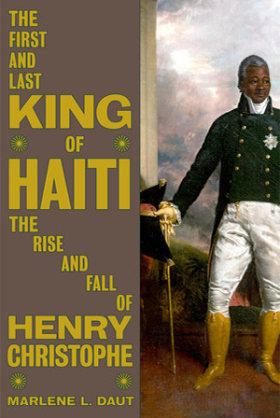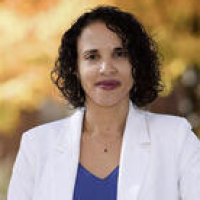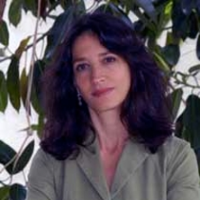The First and Last King of Haiti: The Rise and Fall of Henry Christophe


Henry Christophe (1767–1820), Haiti's only king, was a revolutionary icon and a profoundly complex figure. Born enslaved in Grenada, he fought for freedom in North America and Haiti, later aligning with Napoleon before reclaiming his revolutionary roots. The First and Last King of Haiti unravels Christophe’s enigmatic life; explores his rise, betrayal, rule, and tragic demise; and sheds light on his ideals, flaws, and the turbulent era that defined him.
Marlene Daut is Professor of French and African Diaspora Studies at Yale University. Professor Daut teaches courses in anglophone and francophone Caribbean, African American, and French colonial literary and historical studies. Primarily a literary and intellectual historian of the Caribbean, she writes about the history of the Haitian Revolution, literary cultures of the greater Caribbean, and racial politics in global media, especially as appears in film and television. Her books include Baron de Vastey and the Origins of Black Atlantic Humanism (Palgrave Macmillan, 2017); Tropics of Haiti: Race and the Literary History of the Haitian Revolution in the Atlantic World, 1789–1865 (Liverpool University Press, 2015); Awakening the Ashes: An Intellectual History of the Haitian Revolution (University of North Carolina Press, 2023); and the forthcoming The First and Last King of Haiti: The Rise and Fall of Henry Christophe (Knopf, January 2025). She is also co-editor (with Grégory Pierrot and Marion Rohrleitner) of the volume, Haitian Revolutionary Fictions: An Anthology (UVA Press, 2022).
The Washington History Seminar is co-chaired by Eric Arnesen (George Washington University) and Christian Ostermann (Woodrow Wilson Center) and is organized jointly by the American Historical Association and the Woodrow Wilson Center's History and Public Policy Program. It meets weekly during the academic year.
Speaker

Panelists


Hosted By

History and Public Policy Program
A global leader in making key archival records accessible and fostering informed analysis, discussion, and debate on foreign policy, past and present. Read more
